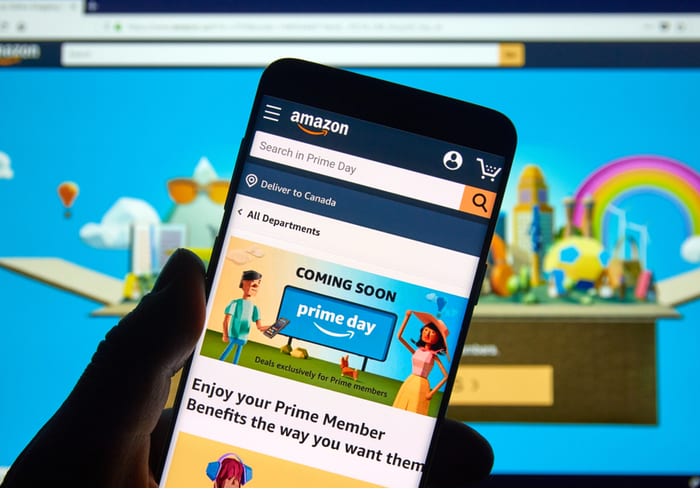Amazon To Charge Some Grocery Brands To Offset Prime Day Losses

With this year’s Prime Day approaching, Amazon is reportedly charging “additional funding” to some brands in the grocery space during Prime Day in the event that sales of their promotional items cause a loss for the eCommerce retailer. The shift was reportedly created to “fund the profitability gap” of the items that the company buys wholesale and then sells, CNBC reported.
The company, however, is waiving the placement fee to run promotions for Prime Day, which is said to usually cost $500 per deal. Amazon said in an email to vendors, according to reports, “This year, we’ve decided not to charge placement fees for inclusion in deal events, but instead we request our vendors to fund a [listing] if it’s unprofitable for the duration of the deal. If additional funding is required, it will be based off total unprofitable units sold for the duration of the deal.”
According to the report, the move marks a broader path by Amazon to get profits out of a business that has typically been a low-margin space. In swapping out the promotion fee, the retailer is said to be “showing its willingness to forego top-line growth if it’s able to protect its bottom line.”
At the same time, the report said it was not known why Amazon was homing into the grocery category, which encompasses products such as boxes of chocolates and small water bottles. There is the chance that these items tend to be bulky but lower-priced, which means they would be expensive to ship at profitable margins.
Last year, Amazon raked in $4.2 billion from shoppers during the Prime Day event, per reports last July. Bloomberg, citing Wedbush Securities Analyst Michael Pachter, noted the retailer shipped more than 100 million products during the 36-hour event.